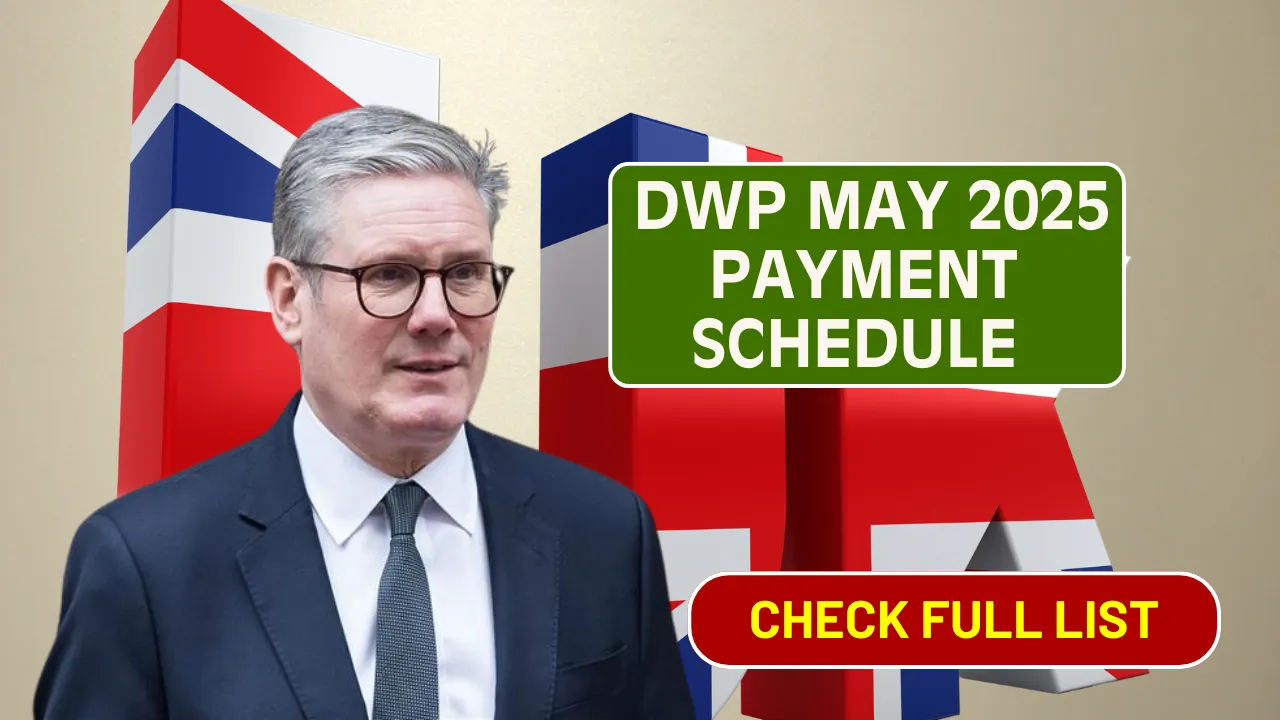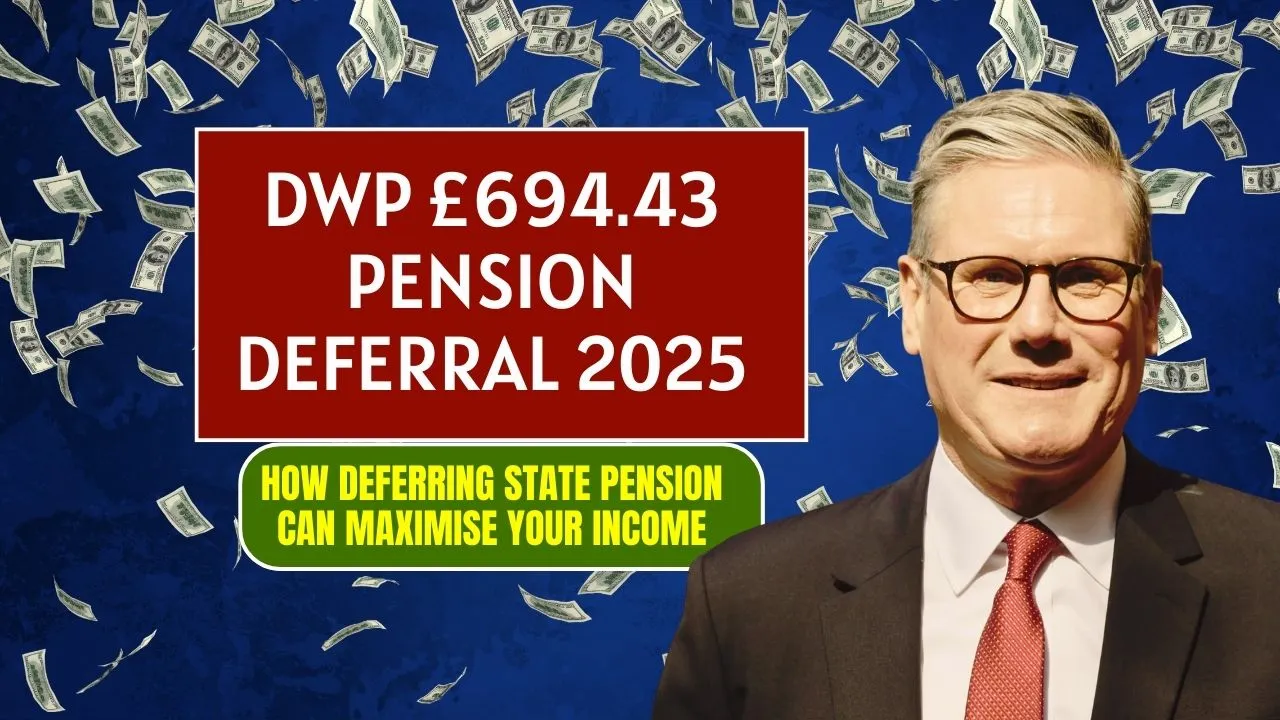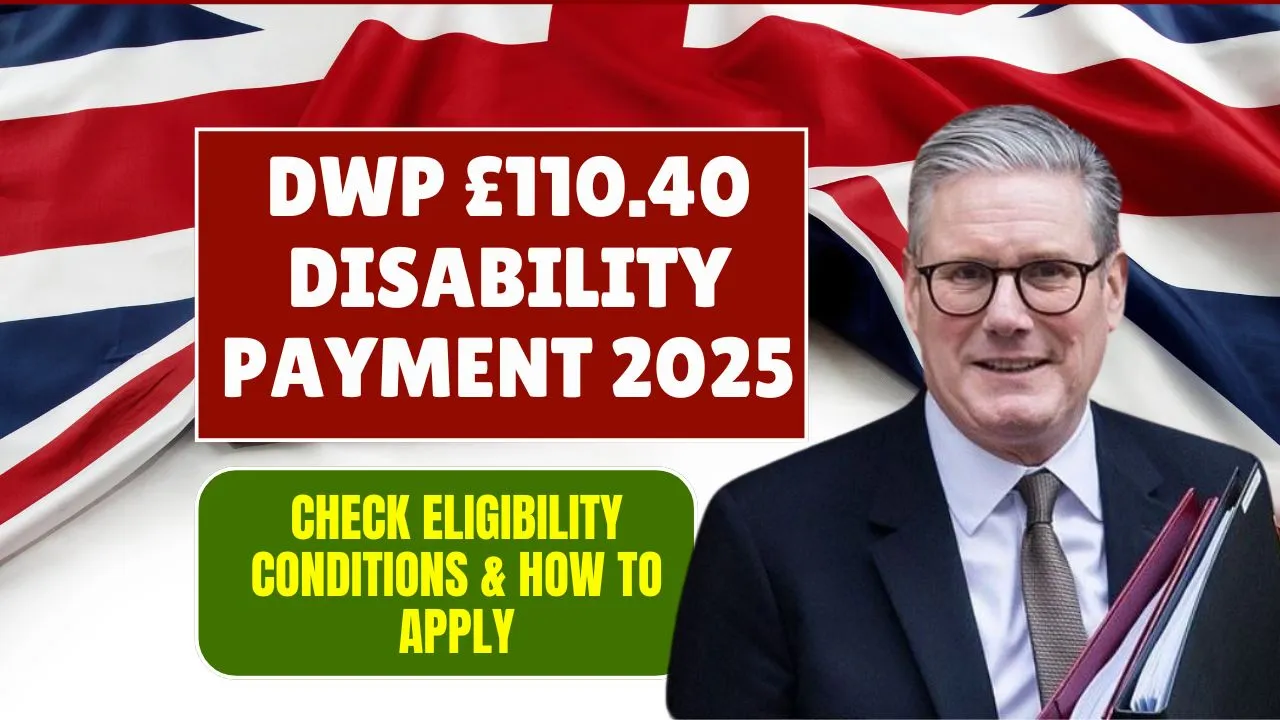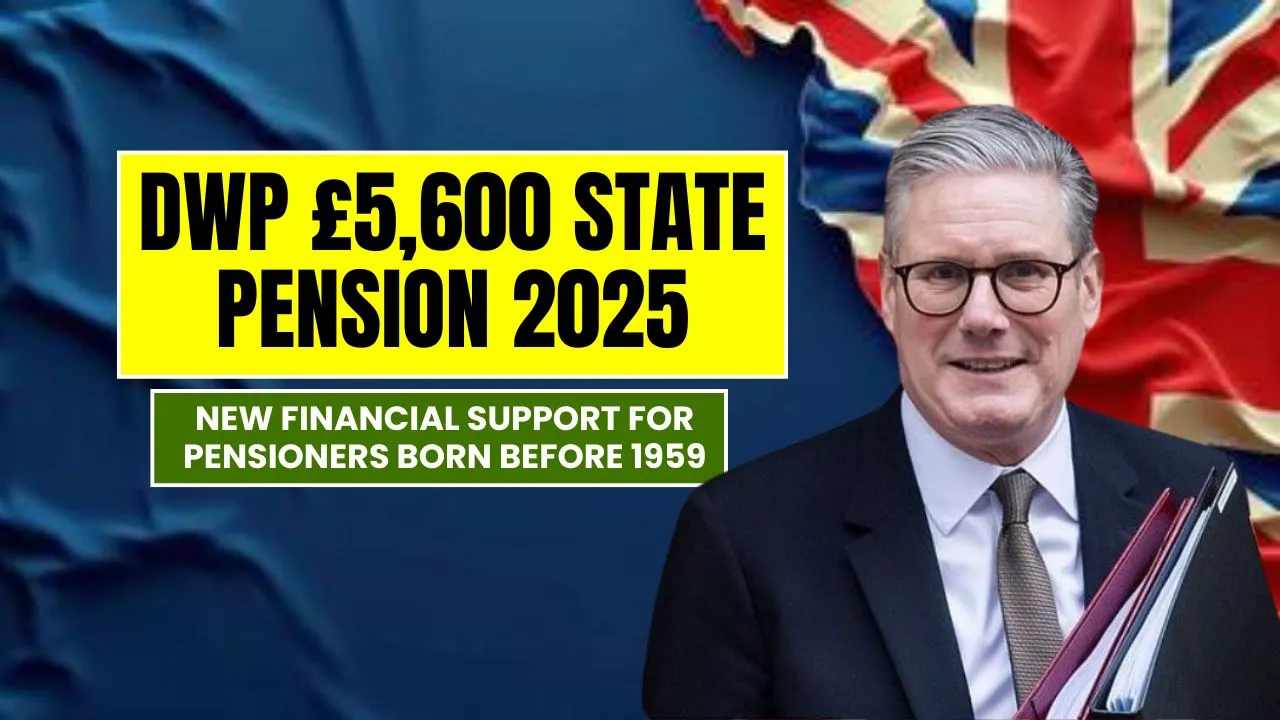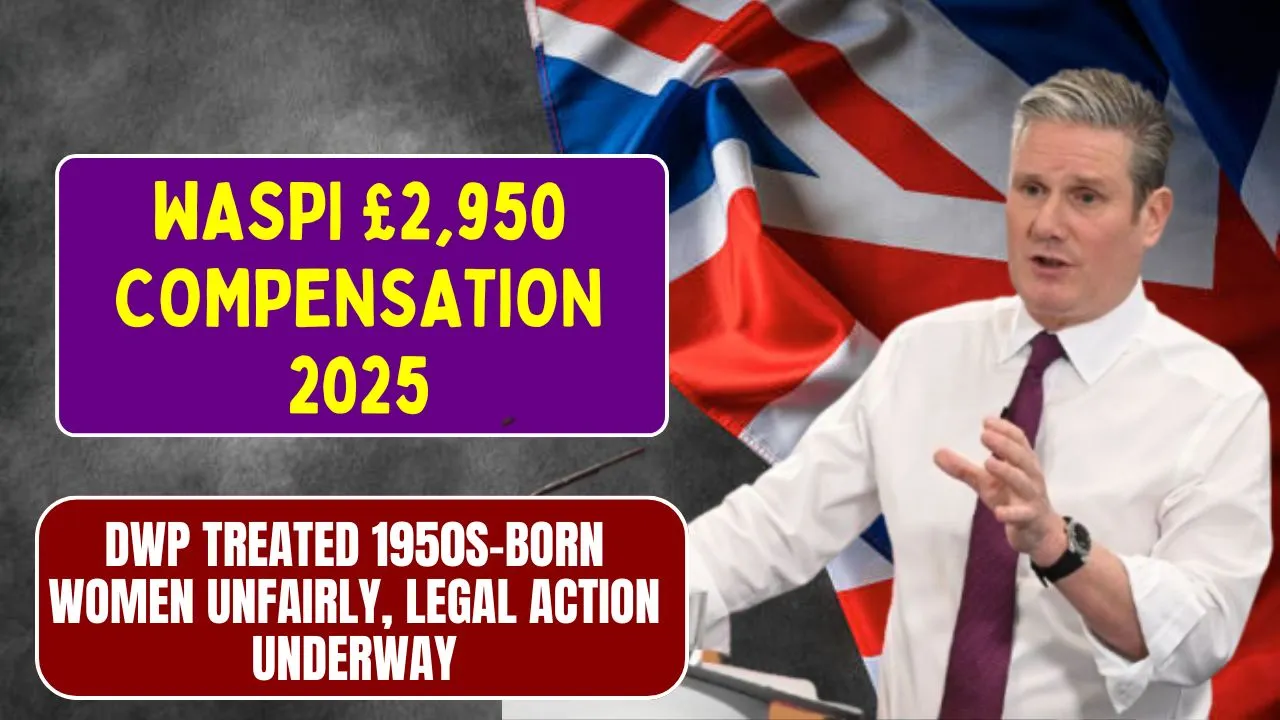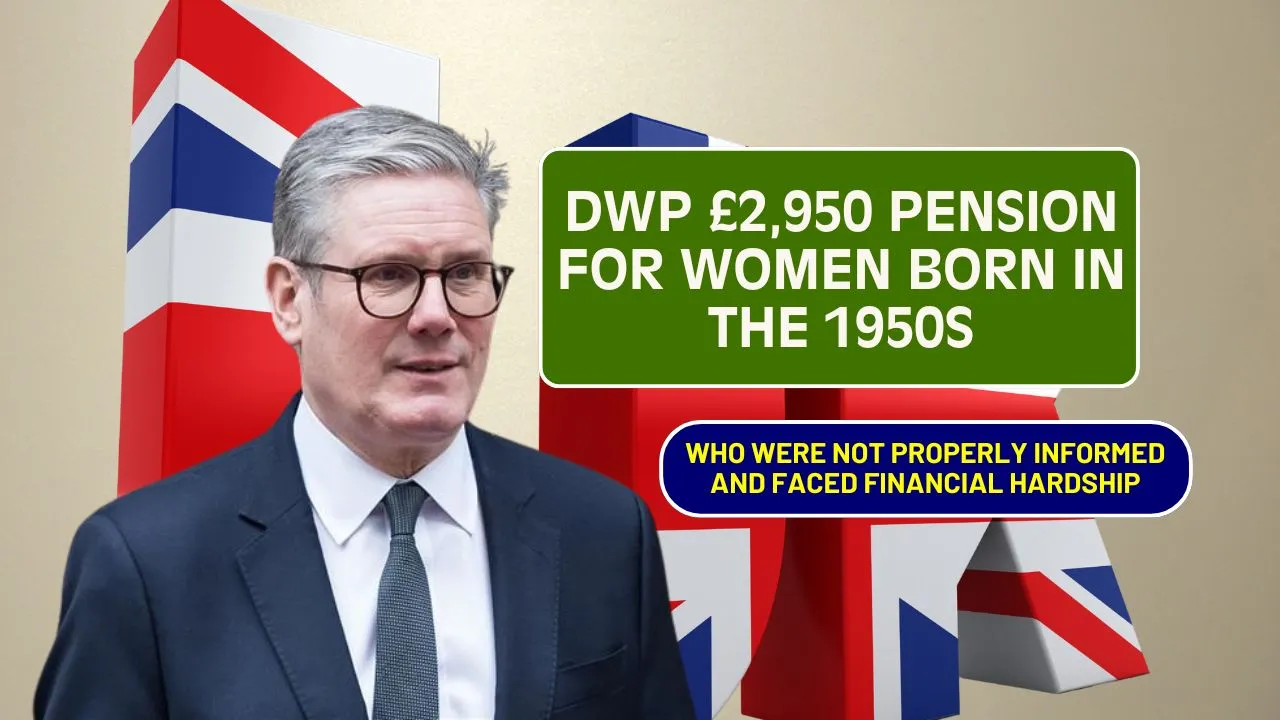DWP May 2025 Payment Schedule: As the UK eters a new financial year, many residents are experiencing a small financial lift. Increases in the national minimum wage, pensions, and other government-managed benefits are now in effect, offering a boost to millions. However, the relief is tempered by a sharp rise in living expenses, including energy bills, council tax, and water charges, which continue to put pressure on household budgets.
Understanding the updated DWP May 2025 Payment Schedule is crucial for planning ahead. From adjusted benefit payment dates due to Bank Holidays, to new rules around Universal Credit, pensions, and childcare support, this article covers all the essential updates you need to know for the month of May.
DWP May 2025 Payment Schedule: What’s Changing?
This May, most Department for Work and Pensions (DWP) benefits and pensions will be paid on their usual dates, except for two key Bank Holiday changes. If your payment is due on 5 May, it will arrive early on 2 May, and if it’s due on 26 May, it will be paid on 23 May. These adjustments apply to a range of benefits, including Universal Credit, State Pension, Child Benefit, and more.
With cost-of-living concerns still affecting many families, it’s also important to check for other financial help available through grants, loans, and energy support.
Overview Table: DWP May 2025 Payment Schedule and Key Updates
| Item | Details |
| State Pension Increase | 4.1% rise from April 2025 |
| DWP-Managed Benefits Increase | 1.7% increase from April 2025 |
| Bank Holiday Payment Adjustments | 5 May paid on 2 May, 26 May paid on 23 May |
| Universal Credit Changes (2026) | £7/week rise, health element frozen and reduced for new claimants |
| Pension Payment Schedule | Based on NI number last 2 digits: 00–19 (Mon), 20–39 (Tue), etc. |
| Budgeting Loans | £348 (single), £464 (couple), £812 (with children) – capped at 15% deduction |
| Energy Support | British Gas grants up to £2,000; other providers also offer schemes |
| Free Childcare | 30 hours for ages 3–4, 15 hours for age 2, 30 hours for all under-fives from Sept 2025 |
Income Boosts for Many UK Residents
From April 2025, several updates have increased income for a large portion of the population:
- The National Minimum Wage has gone up by 6.7%, offering workers roughly an extra £1,400 a year.
- The State Pension has increased by 4.1%, in line with the Triple Lock commitment.
- All DWP-managed benefits have risen by 1.7%, including Universal Credit, PIP, Attendance Allowance, and others.
These changes are designed to ease the financial burden for working individuals, retirees, and low-income households. However, rising bills continue to offset much of this progress.
Household Bills Are Rising
Despite the income increases, many people are struggling more due to higher living costs:
- Energy bills have risen sharply, with Ofgem’s price cap now at £1,849.
- Water bills and council tax have also increased.
- On average, families are paying an additional £9.25 per month for energy alone.
This means that although some income has gone up, many households are still feeling squeezed, especially those on fixed or low incomes.
Welfare Cuts on the Way
Looking ahead, the government has announced £5 million in welfare cuts, which could affect thousands of people:
- From April 2026, Universal Credit standard allowance will increase by £7 per week.
- However, the health element of Universal Credit will be frozen, and later reduced for new applicants.
- Tighter rules may also impact eligibility for PIP (Personal Independence Payment).
If you think you qualify for these benefits, it’s advisable to apply before these changes take effect, to secure higher rates and better support.
UK Poverty Levels Still High
A Joseph Rowntree Foundation report highlights the ongoing need for government support:
- 14.3 million people in the UK lived in poverty during 2022–2023.
- This includes 8.1 million working-age adults
- 4.3 million children
- 1.9 million pensioners
- This includes 8.1 million working-age adults
These numbers underscore the importance of regular payments and financial assistance programs for a significant portion of the population.
May 2025 Benefit Payment Dates
If your benefit payment is scheduled for a Bank Holiday, it will arrive early:
- 5 May (Bank Holiday) → Paid on 2 May
- 26 May (Bank Holiday) → Paid on 23 May
These changes affect:
- Universal Credit
- State Pension
- Child Benefit
- Disability Living Allowance
- PIP
- Attendance Allowance
- Carer’s Allowance
- ESA
- Income Support
- Jobseeker’s Allowance
Be sure to check your account in advance to plan accordingly.
Pension Payment Dates in May
Your State Pension will be paid based on the last two digits of your National Insurance number:
- 00–19: Monday
- 20–39: Tuesday
- 40–59: Wednesday
- 60–79: Thursday
- 80–99: Friday
Knowing your NI number helps you determine your exact payment date each week.
Other Financial Support You Can Claim
Budgeting Advance Loans
If you’re on Universal Credit and need help with one-off costs:
- £348 (Single)
- £464 (Couple)
- £812 (With children)
From April 2025, repayments are capped at 15% of your benefit instead of 25%, easing the burden on repayments.
Charitable Grants
If you’re a carer, student, bereaved, or disabled, visit Turn2us.org to search for grants in your area.
Energy Support
- British Gas: Grants up to £2,000, even for non-customers.
- Other suppliers like EDF, Octopus, and E.ON also offer hardship funds.
Council Tax Support
Depending on your income, you might qualify for up to 100% off your bill or discretionary help. Contact your local council to apply.
Free Childcare
Currently, you can get:
- 30 hours for 3–4-year-olds
- 15 hours for 2-year-olds
From September 2025, this expands to 30 hours for all children under 5.
Mental Health Support
If you’re feeling overwhelmed, help is always available:
- Samaritans: Call 116 123 (free, 24/7)
- Mind: 0300 102 1234 or 0300 123 3393
- Scope: Online forums for disability support
- NHS: Access mental health help online or through your GP
Final Thoughts
The DWP May 2025 Payment Schedule brings helpful updates to pensions and benefits at a time when every pound matters. While wage and benefit increases offer some relief, the rising cost of living continues to challenge many households. With upcoming welfare reforms and scheduled Bank Holidays affecting payment dates, now is the time to double-check your entitlements, claim available support, and prepare for changes ahead.
If you or your family are feeling the financial strain, don’t wait—look into budgeting loans, energy grants, and childcare support. Taking action today can help ensure financial stability tomorrow.
